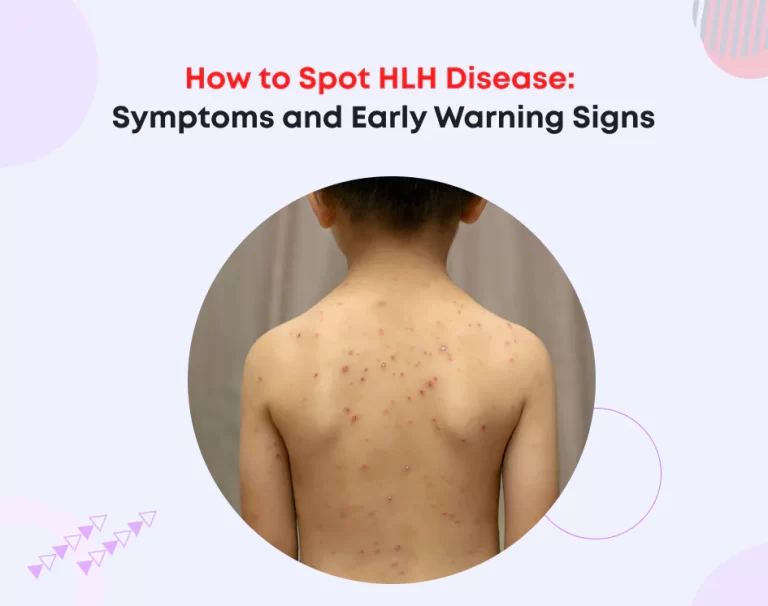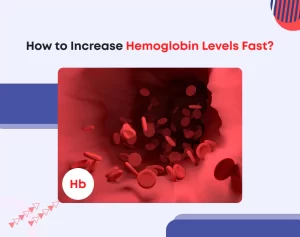
How to Spot HLH Disease: Symptoms and Early Warning Signs
Hemophagocytic Lymphohistiocytosis (HLH) is a rare but severe condition that causes the body’s immune system to become overactive. In HLH, the immune system attacks the body’s own tissues, leading to life-threatening inflammation and damage. It’s critical to identify HLH early, as it can rapidly progress to severe illness. This blog will guide you through spotting the symptoms and early warning signs of HLH, helping you understand when to seek medical attention. Knowing these signs can make a significant difference in managing the disease effectively and can be crucial for survival.
What is Hemophagocytic Lymphohistiocytosis?
HLH stands for Hemophagocytic Lymphohistiocytosis, a disorder where the body’s immune system goes into overdrive, attacking healthy cells. This hyperactivity leads to excessive inflammation and tissue damage and can affect multiple organs. HLH can be inherited or acquired and often presents similarly to severe infections or other inflammatory conditions.
Types of HLH
HLH is broadly categorized into two types:
1. Primary (Familial) HLH
Genetic Origin: Caused by genetic mutations passed down through families.
Early Onset: Often diagnosed in infants and young children.
Diagnosis: Requires genetic testing to identify mutations.
2. Secondary (Acquired) HLH
Triggers: Often follows infections, autoimmune diseases, or cancers.
Age of Onset: Occur at any age, including adulthood
Diagnosis: Based on clinical symptoms and underlying conditions.
Both types of hemophagocytic lymphohistiocytosis are serious and need prompt medical intervention.
Symptoms of HLH
HLH symptoms can be nonspecific and similar to other conditions, making diagnosis challenging. However, identifying a pattern can assist in detecting HLH early.
Common Symptoms of HLH
A few common symptoms of Hemophagocytic Lymphohistiocytosis (HLH) are:
1. Fever
Persistent High Fever: Unexplained, prolonged fever often exceeding 38.5°C (101.3°F).
Not Responsive to Treatment: Doesn’t improve with standard fever-reducing medications.
2. Fatigue and Weakness
Extreme Tiredness: Significant lack of energy, more profound than typical fatigue.
Activity Limitation: Difficulty in performing daily tasks due to exhaustion.
3. Enlarged Liver and Spleen (Hepatosplenomegaly)
Abdominal Swelling: Noticeable discomfort or swelling in the upper abdomen.
Palpable Organs: The liver or spleen may be felt during a physical exam.
4. Rash
Widespread Skin Rash: Red or purplish spots or patches on the skin.
Non-Itchy: Usually not associated with itching.
5. Lymphadenopathy
Swollen Lymph Nodes: Visible enlargement in the neck, armpits, or groin area.
Tender to Touch: Can be painful or tender when pressed.
6. Neurological Symptoms
Headaches: Persistent or severe headaches not relieved by typical remedies.
Seizures: Unexpected seizures or convulsions.
Mental Changes: Confusion, irritability, or behavioural changes
These symptoms warrant immediate medical evaluation to rule out HLH or other severe conditions.
Laboratory Findings in HLH
Lab tests are crucial for diagnosing HLH, as they reveal specific abnormalities. Some of them are:
Low Blood Cell Counts (Cytopenias)
Anemia: Low red blood cell count, causing fatigue and pallor.
Leukopenia: Reduced white blood cells, leading to frequent infections.
Thrombocytopenia: Low platelet count leads to easy bruising and bleeding.
Elevated Ferritin Levels
High Ferritin: Indicates significant inflammation, often exceeding 500 ng/mL.
Persistent Elevation: Continues to rise despite standard treatment.
Elevated Triglycerides
Hypertriglyceridemia: High levels of triglycerides in the blood, reflecting inflammation.
Low Fibrinogen Levels
Hypofibrinogenemia: Reduced fibrinogen, a protein needed for blood clotting
Elevated Liver Enzymes
Indicators of Liver Damage: Elevated AST and ALT enzyme levels detected in blood tests
Laboratory findings should be interpreted by a healthcare professional familiar with HLH.
Imaging Studies in HLH Diagnosis
Imaging can provide insight into organ involvement in HLH. A few are:
Ultrasound
Abdominal Ultrasound: To check for enlarged liver and spleen.
Non-invasive: It’s safe, and often, the initial imaging test is conducted.
CT Scan
Detailed Imaging: Helps assess organ size and potential damage.
Used for Complications: Evaluate if there are complications like fluid accumulation.
MRI
Neurological Assessment: Used if there are neurological symptoms to detect brain inflammation or lesions.
Detailed Images: Provides a clear depiction of structures of the brain.
Imaging results support other diagnostic findings and help guide treatment.
Biopsy and Genetic Testing
In some cases, more invasive tests are needed to confirm HLH. These are:
Bone Marrow Biopsy
Purpose: Check for hemophagocytosis, where immune cells consume other blood cells.
Procedure: This process includes removing a tiny sample of bone marrow for examination purposes.
Genetic Testing
For Familial HLH: Identifies genetic mutations responsible for primary HLH.
Confirmatory: Helps differentiate between primary and secondary HLH.
Biopsy and genetic testing are pivotal in affirming the diagnosis and delineating the type of HLH.
Early Warning Signs of HLH
Early recognition of HLH can be lifesaving. Below are some early warning signs to keep an eye out for:
Persistent High Fever
Unexplained Fever: Lasts more than a week without an obvious cause.
Resistant to Medication: Doesn’t respond to standard fever-reducing treatments.
A persistent fever is often one of the first signs of HLH and should not be ignored.
Fatigue and Loss of Appetite
Sudden Fatigue: Noticeable decrease in energy levels without a clear reason.
Weight Loss: Unintentional weight loss due to loss of appetite.
Fatigue combined with weight loss should prompt further investigation.
Unusual Bruising or Bleeding
Easy Bruising: Bruises appear with minimal impact or without any injury
Nosebleeds: Frequent or severe nosebleeds that are hard to stop.
Unexpected bruising or bleeding indicates potential blood count issues, a hallmark of HLH.
Abdominal Pain and Swelling
Discomfort: Pain or swelling in the abdomen, particularly in the upper left side.
Swollen Organs: Can be due to an enlarged spleen or liver
Persistent abdominal symptoms should be evaluated for potential organ enlargement.
Neurological Symptoms
Headaches and Confusion: Persistent headaches or confusion, unusual for the person
Seizures: Sudden onset of seizures, especially without a prior history
Neurological changes can signify severe HLH progression affecting the brain.
When to Seek Medical Attention?
It’s crucial to know when to consult a doctor for HLH, as timely intervention can be lifesaving. Here they are:
Severe and Persistent Symptoms
Prolonged Fever: Any fever lasting more than a week without a known cause
Unexplained Fatigue: Severe tiredness that disrupts daily life.
Rapid Symptom Progression
Worsening Condition: Symptoms that escalate quickly in severity.
Multiple Symptoms: Presence of several HLH symptoms simultaneously
High-Risk Groups
Family History: Individuals with a family history of HLH or related disorders.
Known Triggers: Patients with underlying conditions like autoimmune diseases or recent infections.
Consult your healthcare provider immediately if you notice these signs, as early treatment is crucial.
Wrapping Up
Early detection of HLH is crucial for effective treatment and improving outcomes. By recognizing the symptoms and early warning signs, you can seek timely medical help and avoid severe complications. Always consult a healthcare professional if you suspect HLH, especially if you or a loved one shows multiple signs of this serious condition. Awareness and prompt action can make a significant difference in managing HLH effectively. Stay informed and seek medical advice if you notice persistent or severe symptoms.






